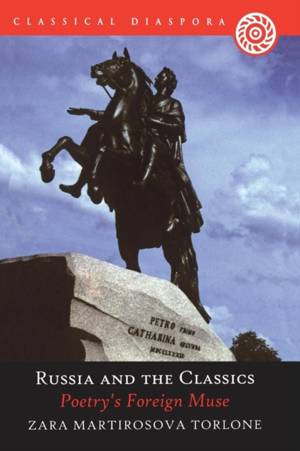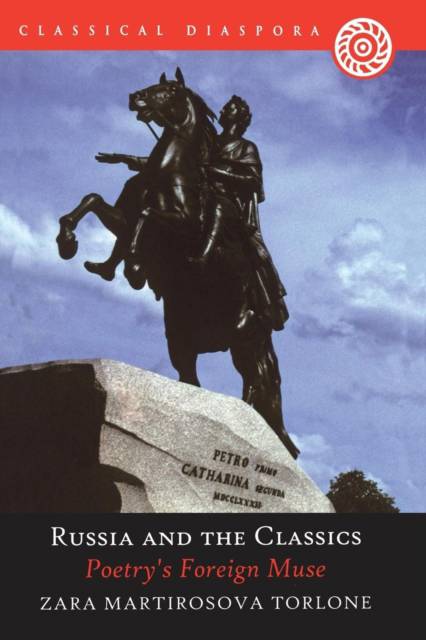
- Afhalen na 1 uur in een winkel met voorraad
- Gratis thuislevering in België vanaf € 30
- Ruim aanbod met 7 miljoen producten
- Afhalen na 1 uur in een winkel met voorraad
- Gratis thuislevering in België vanaf € 30
- Ruim aanbod met 7 miljoen producten
Omschrijving
This important study, the first in a new series on "Classical Diaspora", explores the reception of classical antiquity in Russian poetry with a particular focus on the writings of several significant twentieth-century poets: Innokentii Annenskii, Viacheslav Ivanov, Marina Tsvetaeva, Osip Mandelshtam and Joseph Brodsky. These poets' engagement with the classics is analysed within the wider context of Russia's relationship with Greco-Roman heritage as a gateway to European culture. The earlier phase of the development of classical reception in Russian poetry is traced from Antiokh Kantemir and Mikhailo Lomonosov to Alexander Pushkin. Thus the book offers a concise chronology of Russian poetry's self-construction as a legitimate Euopean heir to the legacy of Greece and Rome. The Russian poetic reception of classical literature has its own distinctive features such as a preoccupation with mythological tragedy and with the reception of Ovid's poetry of exile, setting it apart from the traditions and movements associated with Western European classicism.This fascinating study combines historicist scholarship with a sophisticated alertness to recent developments in reception theory, producing a compelling account of a hitherto neglected aspect of the classical tradition.
Specificaties
Betrokkenen
- Auteur(s):
- Uitgeverij:
Inhoud
- Aantal bladzijden:
- 192
- Taal:
- Engels
- Reeks:
Eigenschappen
- Productcode (EAN):
- 9780715637173
- Verschijningsdatum:
- 1/07/2009
- Uitvoering:
- Paperback
- Formaat:
- Trade paperback (VS)
- Afmetingen:
- 155 mm x 231 mm
- Gewicht:
- 430 g

Alleen bij Standaard Boekhandel
Beoordelingen
We publiceren alleen reviews die voldoen aan de voorwaarden voor reviews. Bekijk onze voorwaarden voor reviews.







